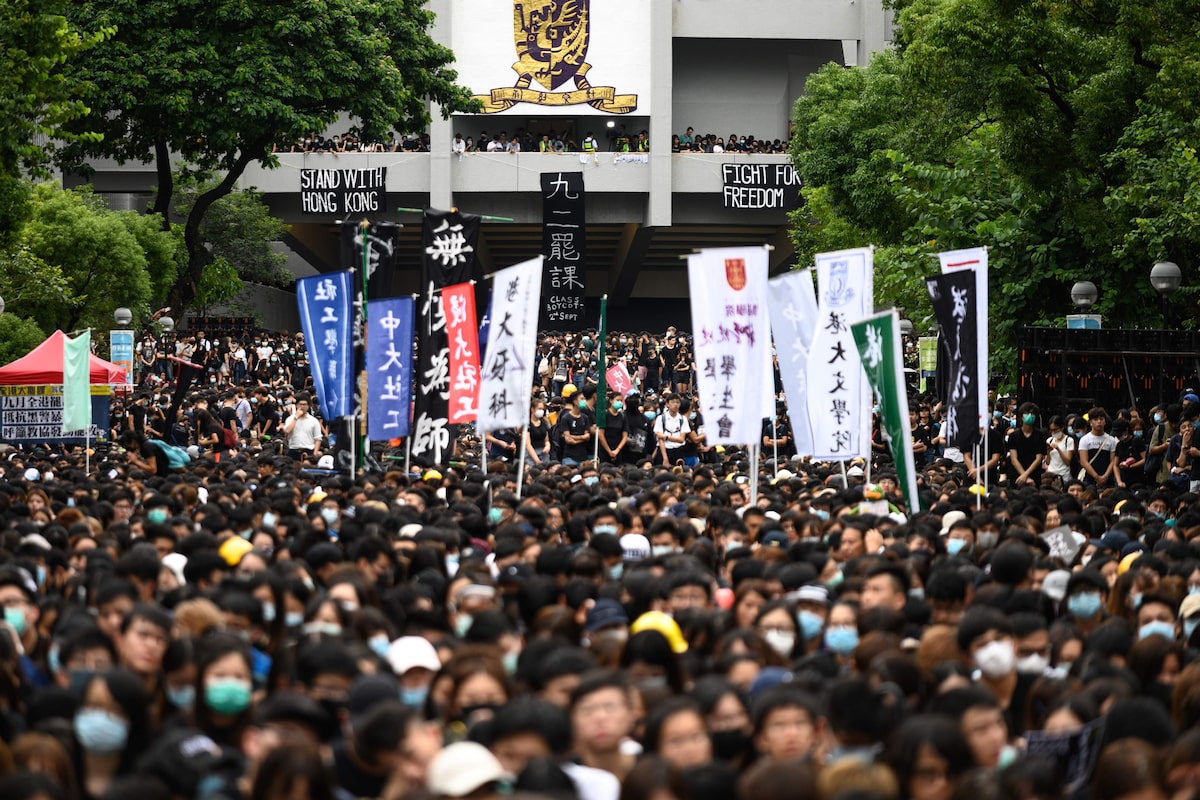



Hello, welcome to Politics Insider, election edition. There are seven days until voting day. Let’s look at what happened today.
A federal election-threats watchdog has uncovered a foreign interference operation from China targeting a Toronto-area Conservative candidate.
The goal of the plan was to shift public opinion among Chinese-speaking Canadians against the candidate, who has been a sharp critic of Beijing’s crackdown on civil rights in Hong Kong.
Steven Chase and Emily Haws report that the target was Joe Tay, the Conservative Party candidate for the federal riding of Don Valley North.
The Security and Intelligence Threats to Elections Task Force announced today that this campaign is taking place on the social-media platforms where Chinese-speaking Canadians are active.
They include WeChat, Facebook, RedNote, TikTok and Douyin, a short-video application owned by the same company as TikTok.
The task force described this effort as a transnational repression operation. This is a form of foreign interference where authoritarian governments reach beyond their borders to harass, threaten and intimidate people overseas who are critical of these regimes.
Meanwhile, the federal Conservatives say they will be releasing their platform on Tuesday, a day after advance voting for the election ends.
The timing makes the Conservatives the last major party to unveil the entirety of its plan should it form government on April 28.
Students attend a school boycott rally at the Chinese University of Hong Kong on September 2, 2019.PHILIP FONG/AFP/Getty Images
Jagmeet Singh and the NDP confront an uncertain future: The NDP has lost voters to both the Conservatives and Liberals, but its leader, Jagmeet Singh still believes a progressive voice is needed – so he heads forward into an uncertain future.
Carney pledges to reduce government reliance on U.S. tech giants: Liberal Leader Mark Carney told reporters at a campaign stop in Charlottetown today that building the capacity of Canadian technology companies and reducing the use of American providers is an important element of his party’s economic strategy.
Language is usually top of mind for Winnipeg francophones. Not in this election: As voters prepare to go to the polls next week, voters in the St. Boniface neighbourhood of Winnipeg – the heart of Franco-Manitoba and one of the country’s largest French-speaking communities outside Quebec – are balancing protecting their language with Donald Trump’s trade war
The poll by Nanos Research, conducted for The Globe and Mail and CTV, surveyed 1,195 Canadians aged 18 and older from the past three days. The interviews are compiled into a three-night rolling average. It has a margin of error of 2.7 percentage points, 19 times out of 20. Respondents were asked: “For those parties you would consider voting for federally, could you please rank your top two current local preferences?”
The full methodology for all surveys can be found at: tgam.ca/polls.
“I seem to understand that he fears I would send him pictures of my poutine or some emojis, which won’t happen.” –Bloc Québécois Leader Yves-François Blanchet, at a news conference in the community of Saint-Irénée, on his lack of communication with Liberal Leader Mark Carney on federal management of issues of concern to Quebec.
Elections Canada announced on Friday that two million voters had cast ballots on the first day of advance voting. How much of an increase is that over the first day of advance voting in the last election in 2021?
Scroll to the bottom of this newsletter for the answer.
The Liberals and Tories are so similar, they look like Tweedledum and Tweedledee
Mr. Poilievre still hasn’t told us how he would finance his platform, which should alarm any fiscally responsible voter. The Conservatives said Monday they will release their costed platform Tuesday, after early voting is completed.
— John Ibbitson, former staff writer
The Liberals’ (other) next carbon tax
Mr. Carney’s replacement tax, despite being described as a way to make “big polluters” pay for subsidies for such things as EVs and heat pumps, could end up being a carbon levy on Canadian households to some degree. The only question is how much.
— The Globe and Mail Editorial Board
Now is not the time for Canada to walk away from diversity, equity and inclusion
The prominence given to advancing diversity, equity and inclusion (DEI) may have disappeared from today’s headlines, but it would be a mistake to conclude that it no longer matters to Canadians.
— Michael Adams is the founder and president of the Environics Institute for Survey Research. Marva Bailey-Wisdom is a senior equity and inclusion practitioner, a fellow at the Environics Institute for Survey Research, and a senior fellow at the Munk School of Global Affairs and Public Policy. Keith Neuman is a senior associate with the Environics Institute.
Got a news tip that you’d like us to look into? E-mail us at tips@globeandmail.com. Need to share documents securely? Reach out via SecureDrop.
The answer to today’s question: It’s an increase of 36 per cent over the corresponding figures for the first day of advance voting in the 2021 general election, according to Elections Canada.
There has been a traffic incident at the entrance of Manila Airport, the Foreign Office…
EXCLUSIVE: Typical of Donald Trump, the details of POTUS’ just announced bombshell 100% tariffs on…
Filipino Cardinal Luis Antonio Tagle laughed when asked in 2015 if he had ever considered…
It's safe to say Nissan surprised us all last month at the Auto Shanghai 2025…
American billionaire who predicted the 2008 global recession, Ray Dalio, slammed the tariff policy of…
China is dominating the EV game, but is not giving up on combustion engines yet.…